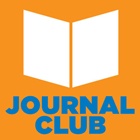The study
CBT for insomnia (CBT-I) is known to be an effective intervention. However, it is rarely used by GPs as it takes too long to deliver in GP consultations, and the training required is extensive.
Lately researchers have focused on interventions that can be realistically delivered within brief GP consultations. This has focused on behavioural components of CBT-I, including sleep restriction and stimulus control. Sleep restriction affects fragmented sleep by decreasing the time spent in bed (aka ‘the sleep opportunity’) which causes mild sleep deprivation, which subsequently improves endogenous sleep drive.
An RCT of 97 patients with primary insomnia in Auckland, New Zealand analysed whether simplified sleep restriction designed to fit into two GP consultations (an even shorter intervention than those mentioned above) could improve sleep among patients with primary insomnia.
Researchers issued almost 30,000 letters to patients requesting participation, but due to rigorous exclusion criteria regards secondary insomnia (including passing a physical examination, checking for co-morbidities, mental health problems and hypnotic medications) the vast majority of these could not participate.
Both groups were given verbal sleep hygiene advice, but the SSR (simplified sleep restriction) group was also given advice on how to implement SSR.
The intervention was that patients had to halve the total time they spent awake in bed. A minimum total of five hours had to be spent in bed (total of time spent sleeping and awake). Patients were reviewed two weeks later, and if they were sleeping for less than 85% of the time they spent in bed, the time spent awake in bed was reduced to 30 minutes (or 60 minutes if they felt very sleepy). Total duration of this advice was 20 minutes.
Outcomes measured included various measures of sleep quality such as the Pittsburgh Sleep Quality Index (PSQI) and Insominia Severity Index (ISI), as well as the Epworth sleepiness scale and wakefulness after sleep. Total sleep time was also analysed.
Main findings
1 SSR intervention lead to statistically significant improved outcomes using the above parameters, with an NNT of four.
2 At the six-month follow-up, 10 patients in the control group were using hypnotic medications three times a week, compared to only two patients in the SSR group.
3 Some 67% of patients in the SSR group had remission of their insomnia compared to 41% in the control group- the adjusted odds of remission were 2.7 times higher in the SSR group compared to the control group
What this means for GPs
GPs should consider instituting basic simplified sleep restriction in patients with primary insomnia – particularly when one considers the significant physical morbidities associated with insomnia, as well as the risks of hypnotics medications including addiction.
Although this trial had a fairly small number of patients, this is a brief intervention that can be delivered quickly, and (as far as I can see) has no major risks of adverse effects or wastage of resources associated with it.
The paper
Dr Hamed Khan is a GP in the emergency department of St George’s, London, and a clinical lecturer. He tweets as @drhamedkhan
Pulse October survey
Take our July 2025 survey to potentially win £1.000 worth of tokens















